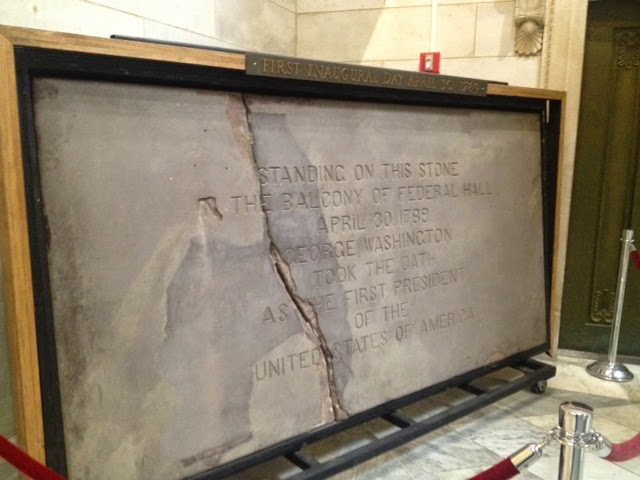I call my bias “probably unfair” because Jefferson was far from the only slaveholder we lionize today. Eight of the first ten presidents were slaveholders, John and John Quincy Adams the exceptions. The issue of Sally Hemings is difficult on many levels, the obvious being that she was Jefferson’s slave. She was also 30 years Jefferson’s junior. The third issue first struck me when reading about Washington. Many rationalize slavery as a part of 18th century life in the United States, something we can’t hold against the founders. I believe that is partially true. However, it is clear that Washington, Jefferson, Madison, and many other prominent slaveholders knew slavery was morally repugnant. Unfortunately, these men did little to purge the United States of the institution of slavery, believing abolition and independence were battles that could not be won simultaneously. That these men were also unable to rid their own lives of dependence on slavery causes one to question their commitment. The belief that abolition and independence had to be achieved separately was based largely on Jefferson’s failed efforts to liberalize slavery laws in Virginia while a member of the Virginia House of Burgesses, in the General Assembly, and in the Continental Congress when a passage on the abolition of the slave trade was struck from the Declaration of Independence. These efforts have to be weighed against the fact that Jefferson both owned slaves and believed that when slavery was eventually abolished, the two races would never be able to coexist. Slavery displays the complexity and hypocrisy of Jefferson’s character.
By the end of Meacham’s book, I had a much greater appreciation for Jefferson’s contribution to the United States today. Jefferson’s early writings helped galvanize Virginian opposition to the British, from his quill came the Declaration of Independence, as Minister to France he helped establish trade agreements between France and the United States, with the Louisiana Purchase he doubled the size of the country, he organized westward exploration trips (including the famed Lewis & Clark expedition) to better understand the country, and founded the University of Virginia to name some of his greatest contributions.
No leader is perfect. Jefferson was maligned for decisions he made as governor of Virginia during the Revolution. As British forces closed in on Virginia, Jefferson waited too long to assemble the militia allowing Benedict Arnold to rampage across the state. Further, Jefferson’s decision to flee Monticello ahead of a British plot to kidnap him was a source of embarrassment for the rest of his life. That Jefferson was supposed to sit at Monticello waiting to be captured sounds ridiculous to me, however the late 18th century was a time when men defend their honor by duel. From this event comes a great anecdote about Jack Jouett, the 6 foot 4, 220 pound Virginia militiaman who embarked on a harrowing, 40 mile, nighttime ride to warn the future president of the plot. The thrashing that Jouett’s face took from this ride was said to leave scars for the rest of his life.
The Embargo Act of 1807 was likely his most difficult decision as president. The Act is amazing in its severity; all the more amazing when considering it was signed by a president who had championed a weaker central government. The Act was in response to continued harassment of American ships by the British and it outlawed the export of all goods from the United States. The embargo proved impossible to fully enforce and damaged both the United States and British economies. While the embargo did not prevent war with England, which would come in 1812, many historians believe that by delaying a war which the United States was not yet prepared to fight, the embargo was not a complete failure.
Something I enjoy most when reading about the founding fathers is quotes that contradict the ideals often attributed to them today. We often hear the founders referred to as if they were a singular group who labored in unison to create a perfect government. This notion is evoked when a modern politician is perceived to be following a course counter to the founders. Late in life, Jefferson said the following:
They ascribe to the men of the preceding age a wisdom more than human, and suppose what they did to be beyond amendment. I knew that age well: I belonged to it… I am certainly not an advocate for frequent and untried changes in laws and constitutions… but I know also that laws and institutions must go hand in hand with the progress of the human mind… We might as well require a man to wear still the coat which fitted him when a boy, as civilized society to remain ever under the regimen of their barbarous ancestors.I don’t believe I can sum-up my reading of Jefferson better than Jon Meacham summed-up Jefferson with the following passage:
Had he been only a philosopher he would not have endured as he does. Had he been only a legislator, or only a diplomat, or only an inventor, or only an author, or only an educator, or even only a president he would not have endured as he does. He endures because we can see in him all the varied and wondrous possibilities of the human experience – the thirst for knowledge, the capacity to create, the love of family and of friends, the huger for accomplishment, the applause of the world, the marshaling of power, the bending of others to one’s own vision. His genius lay in his versatility; his larger political legacy in his leadership of thought and of men.



.JPG)
.JPG)







